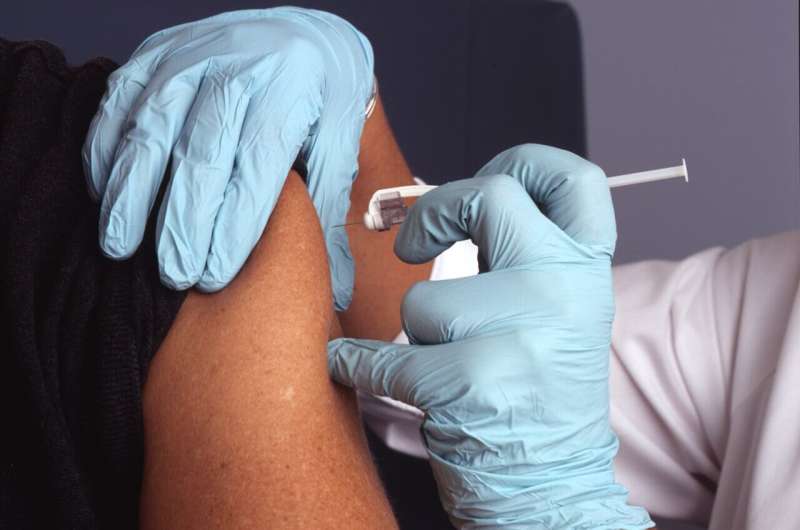Credit: Unsplash/CC0 Public Domain
A study of publicly insured adults living with HIV found that long-acting injectable antiretroviral therapy (LA-ART) with cabotegravir (CAB) and rilpivirine (RPV) achieved virologic suppression among most people with detectable viral loads and adherence challenges. The study is published in Annals of Internal Medicine.
Efforts to ensure equitable implementation of LA-ART for people with HIV with viral suppression are needed. Injectable CAB and RPV holds promise for improving outcomes among populations with barriers to adherence, but it is only approved for those who have achieved virologic suppression with use of oral ART before initiating injectables.
Researchers from San Francisco General Hospital sought to examine the effect of LA-ART in publicly insured adults living with HIV who either had viral suppression and wished to switch to LA-ART, or people with HIV and viremia who struggled with daily pill adherence but expressed willingness to visit the clinic for regular injections.
The cohort faced barriers to adherence, including high rates of unstable housing, mental illness, and substance use. Among 133 patients in the study, 76 started LA-ART with virologic suppression and 57 started with viremia. All but 2 participants with viremia achieved viral suppression at 26 weeks, which is similar to rates from clinical trials.
According to the authors of an accompanying editorial from Boston Medical Center, these findings provide compelling evidence that LA-ART could change the landscape of HIV treatment and prevention by effectively achieving virologic suppression for patients with viremia where there is the greatest need and opportunity.
More information: Abstract: Annals of Internal Medicine (2023). www.acpjournals.org/doi/10.7326/M23-0788
Editorial: Annals of Internal Medicine (2023). www.acpjournals.org/doi/10.7326/M23-1427
Journal information: Annals of Internal Medicine
Provided by American College of Physicians
























